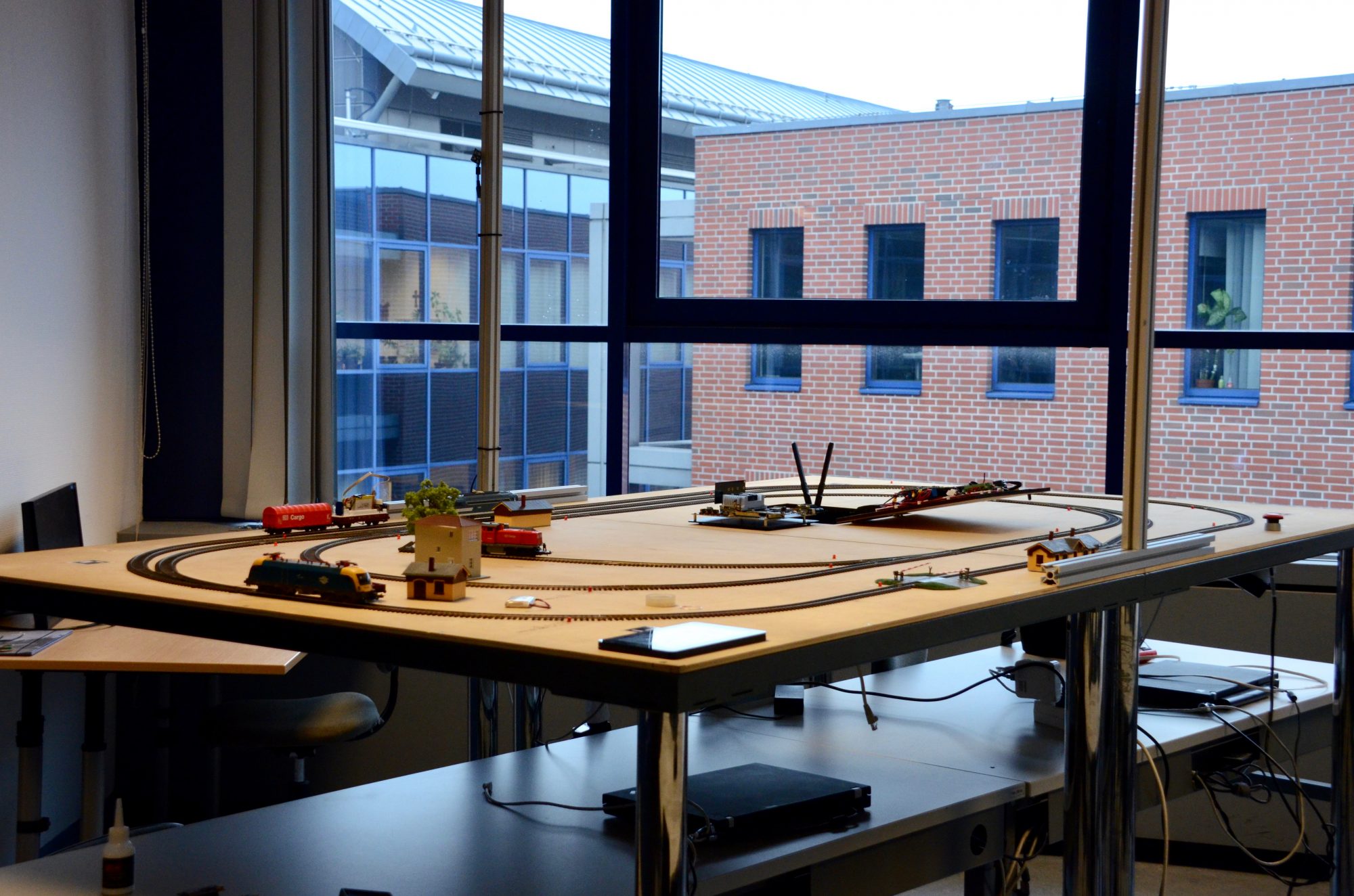As we mentioned earlier, we used YAKINDU Statechart Tools for the safety logic, that controls the model railways. In this post we are going to show, how we use MQTT in YAKINDU Statechart Tools, how we combine model based tools with IoT technologies.

We implemented data classes that are converted into the JSON format automatically by Gson. There is a general Command class which identifies what type of JSON message we are sending, and it determines the Payload of the message transfers.
E.g. if we transfer a direction status of a turnout, then the corresponding JSON looks like: {“command”:“SEND_TURNOUT_STATUS”, “content”:“{“id”:12, “status”: “STRAIGHT”}“} . It means that the turnout that has the ID 12 is set into the STRAIGHT direction.
Besides, we have a general PayloadHelper class whose sendCommandWithContent method can create a correct JSON message from a command and a jsonConvertible object. Note that jsonConvertible objects are those that are depicted on the figure above. First, it creates the corresponding JSON message from the command and the jsonConvertible, and finally it publishes the message to the broker through an MQTT Publisher object.

There is another method, called getPayloadFromMessage that extracts the payload from an MQTT Message and converts it to a Payload object whose content’s type always depends on the corresponding command’s value. In this way we implemented a general JSON to Java object conversion solution with the help of Gson.
Finally, let’s see how the Yakindu model uses these functions. On the following figure a safety-logic specific command, called PASSAGE_REQUEST is sent to the corresponding direction: PASSAGE_REQUEST_TOP, PASSAGE_REQUEST_STRAIGHT, PASSAGE_REQUEST_DIVERGENT. It means the turnout asks the next turnout whether the train can enter its section. The content of the JSON message is generated and sent at the end of the method.

This is where statechart modelling in Yakindu meets IoT!
You can find all the sources codes, along with other modules (MQTT clients, YAKINDU Statechart Tools models, OpenCV codes, Complex Event Processing codes and models, etc) in our GitHub repository at https://github.com/FTSRG/BME-MODES3.
